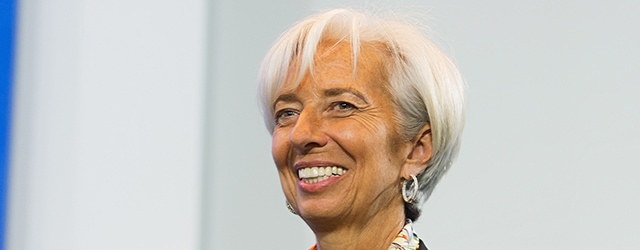Head of theECB sparks anxiety during a time of crisis.

The first non-economist to lead the European Central Bank, Christine Lagarde has gone off-script only a few months into the job.
Her predecessor, Mario Draghi, famously committed to do “whatever it takes” to calm markets when facing the worst financial crisis in a generation. Lagarde took the opposite tack in mid-March, as Italy and its neighbors in Europe became a new epicenter of the coronavirus pandemic, saying that closing the spread between Italy’s and German’s government bond yields was outside her role and above her pay grade.
“We are not here to close spreads. There are other tools and other actors to deal with these issues,” she said in answer to a reporter’s question. Her statement sent the cost of Italian debt skyrocketing; the 10-year yield jumped from 1.32% to 2.37%.
Later, she walked the comment back, telling CNBC that the ECB is committed “to avoid any fragmentation in a difficult moment for the euro area.” A day later, according to the Financial Times, Lagarde apologized to the ECB’s board members. But the cost of Italian debt remained higher and the damage was done.
Critics complain that Lagarde’s comments tainted the ECB’s credibility and made its efforts to stabilize the euro less effective. Italian leaders, including Italy’s president, cried foul as Lagarde’s comments came at a time when Italy was dealing with over 31,000 sick citizens and 2,500 deaths in addition to the economic fallout from the health crisis.
During her time as France’s finance minister, Lagarde won the nickname “Madame La Gaffe” for her plainspoken style and tendency to misspeak. Critics said she spent more time studying her clothing than her dossiers. She later earned credibility as a good political player as head of the International Monetary Fund. But in her ECB role, critics have never tired of pointing out that her background lies more with the law than in economics. They will continue to say so.



